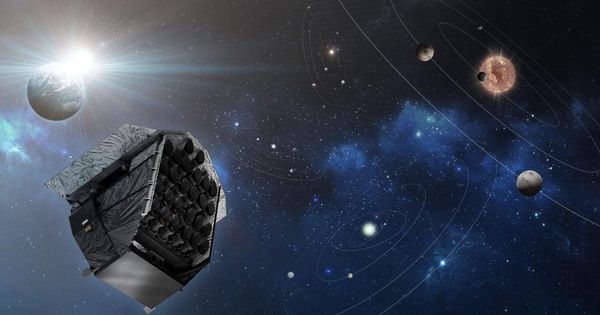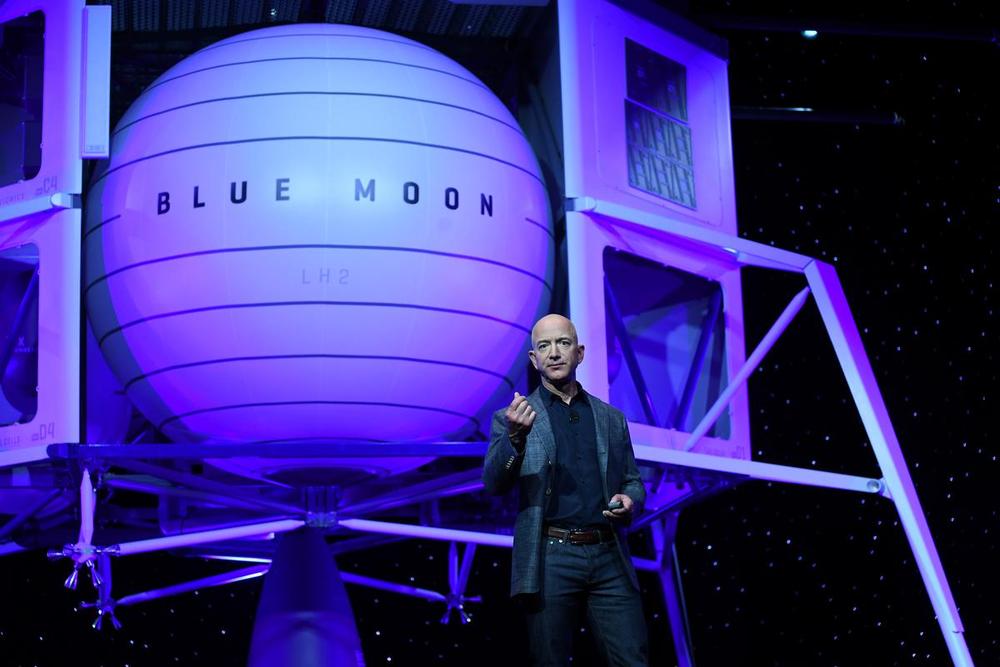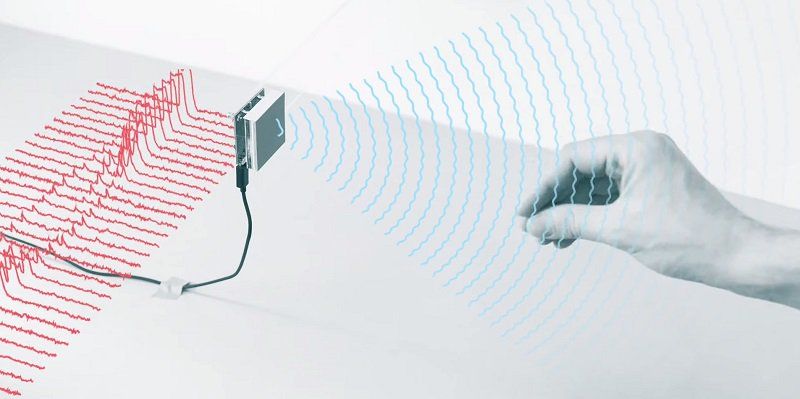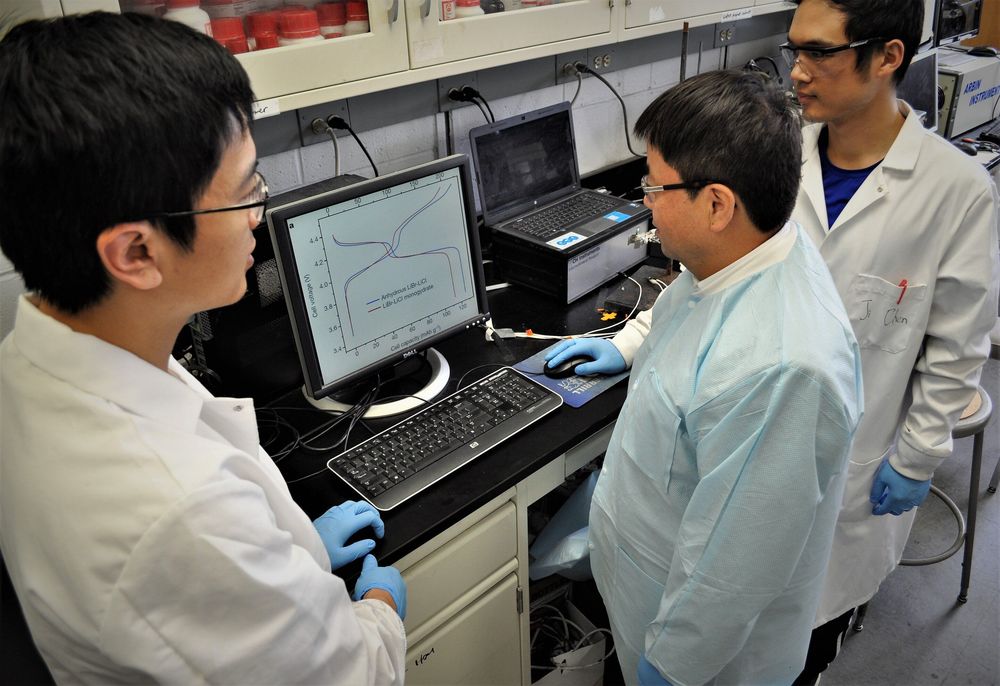Page 8858
May 9, 2019
This startup invented underwear you can wear for weeks without washing
Posted by Quinn Sena in category: futurism
O.o…
A group of Danish innovators have launched a kickstarter campaign for underpants that don’t need to be washed with every use.
May 9, 2019
Billionaire Bezos unveils moon lander mockup, touts Blue Origin’s lunar goals
Posted by Tracy R. Atkins in categories: government, space travel
WASHINGTON (Reuters) — Billionaire entrepreneur Jeff Bezos, founder of rocket company Blue Origin, unveiled on Thursday a mockup of a lunar lander spacecraft and discussed missions to the moon in a strategy tailored to the U.S. government’s renewed push to establish a lunar outpost in just five years.
May 9, 2019
Bill Nye: Killer Asteroid Will Hit Earth ‘Like Control-Alt-Delete For Everything’
Posted by Quinn Sena in categories: asteroid/comet impacts, existential risks
A killer asteroid will hit the Earth, and it is not a matter of “if” but “when,” based on the discussions during last week’s 2019 International Planetary Defense Conference.
Bill Nye opened up about the threat of asteroid impacts and possible extinction, explaining that people need to be more aware of this threat. “The Earth is going to get hit with another asteroid,” Nye said during the 2019 International Planetary Defense Conference. “The problem is, we don’t know when.”
Nye, who is known as the TV “Science Guy” and is currently the CEO of the Planetary Society, continued by saying that even if an asteroid doesn’t hit Earth within the next few decades, the threat is still there.
May 9, 2019
There’s a Power Struggle Inside Google to Control Superhuman AI
Posted by Quinn Sena in categories: ethics, robotics/AI
The ethics review board in charge of evaluating any future AGI is controlled by DeepMind staff.
May 9, 2019
Google’s gesture-controlled sensor has been cleared by the FCC
Posted by Quinn Sena in categories: energy, space
Google has won approval from US regulators to create sensors that can be triggered with hand gestures, dubbed “Project Soli,” Reuters reports.
The news: Google started work on Soli in 2015 but hit a roadblock because the sensors were required to operate at lower power levels than the company planned. These restrictions are in place to stop new products from interfering with other (more important) technologies—in this case radio astronomy and a satellite service. Now the US Federal Communications Commission has granted Google a waiver to let it operate Soli sensors at higher power levels, between 57 and 64 gigahertz. The FCC said this will “serve the public interest.”
How it works: The sensors use radar to capture motion in three-dimensional space. It means users can press invisible buttons or use a virtual dial, for example. The radar signal can penetrate fabrics, meaning it could work through a pocket or backpack.
Continue reading “Google’s gesture-controlled sensor has been cleared by the FCC” »
May 9, 2019
Stem cell scientists clear another hurdle in creating transplant arteries
Posted by Quinn Sena in categories: biotech/medical, finance
Cardiovascular disease is a major cause of death worldwide, and treating it isn’t easy. The disease wreaks havoc on patients’ blood vessels and can require complex bypass surgery.
Scientists at the Morgridge Institute for Research are working toward a dream of creating artery banks—similar to blood banks common today—with readily-available material to replace diseased arteries during surgery.
The latest work in the lab of Morgridge regenerative biologist James Thomson puts the science one step closer to that goal.
Continue reading “Stem cell scientists clear another hurdle in creating transplant arteries” »

Earth, in all its beauty, is just our starting place. Blue Origin is opening the promise of space to all.
May 9, 2019
Reversible chemistry clears path for safer batteries
Posted by Quinn Sena in categories: chemistry, energy, military
Researchers at the University of Maryland (UMD) and US Army Research Lab (ARL) have taken a critical step on the path to high energy batteries by improving their water-in-salt battery with a new type of chemical transformation of the cathode that creates a reversible solid salt layer, a phenomenon yet unknown in the field of water-based batteries.
Building on their previous discoveries of the water-in-salt electrolytes reported in Science in 2015, the researchers added a new cathode. This new cathode material, lacking transition metal, operates at an average potential of 4.2 volts with excellent cycling stability, and delivers an unprecedented energy density comparable, or perhaps higher than, non-aqueous Li-ion batteries. The authors report their work on May 9 in the journal Nature.
“The University of Maryland and ARL research has produced the most creative new battery chemistry I have seen in at least 10 years,” said Prof. Jeffrey Dahn of Dalhousie University in Canada, an expert in the field not affiliated with the research. “However, it remains to be seen if a practical device with long lifetime can be created.”
Continue reading “Reversible chemistry clears path for safer batteries” »
May 9, 2019
California Flips Switch on First Grid-Connected Flow Battery
Posted by Quinn Sena in category: futurism
Flow batteries, an emerging technology, could be more durable and hardy than the most popular grid-scale batteries in use today. Now, California’s independent system operator has hooked one up.

















